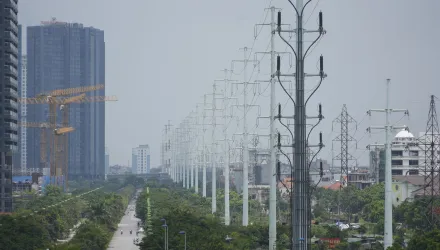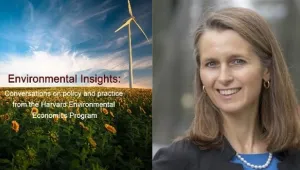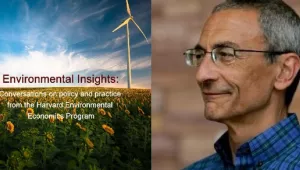Takeaways from the Harvard Kennedy School IDEASpHERE discussion “Sustainable Prosperity on a Crowded Planet,” with William Clark
Sampling of Notable Thoughts
“Today we have an increasingly widely-shared vision of what folks should think about what sustainable development is and what it is not.”
“The fact that everyone is talking about it, even though it’s in different ways, is a good thing...This is resonating around the world.”
Summary
Released to the public in early May, the 2014 National Climate Assessment has brought to light some of the greatest and most dismaying threats to humanity. In his Harvard Kennedy School “IDEASpHERE” session titled “Sustainable Prosperity on a Crowded Planet,” William Clark, co-director of Harvard's Sustainability Science program, talked about these threats, possible solutions, and re-thinking how we approach the topic of sustainability.
The most present threats to our natural environment, according to Clark, are climate change, a collapse of biodiversity, and widespread toxins.
“If these are the threats, what is a sensible person to do?” Clark asked the audience at Harvard Kennedy School. “The answer is to re-think the world we live in.”
Clark discussed the idea of “inclusive wealth,” an alternative to traditional measures of sustainability which includes not just natural, human, and physical capital, but also measures of social and knowledge capital. For example, to increase across-the-board sustainability, it is important to invest in education, healthcare, and strong government institutions as well as traditional goals like fossil-fuel cuts.
"Sustainable Prosperity on a Crowded Planet." Event Report, Discussion, IDEASpHERE Celebration, Harvard Kennedy School, May 16, 2014.



